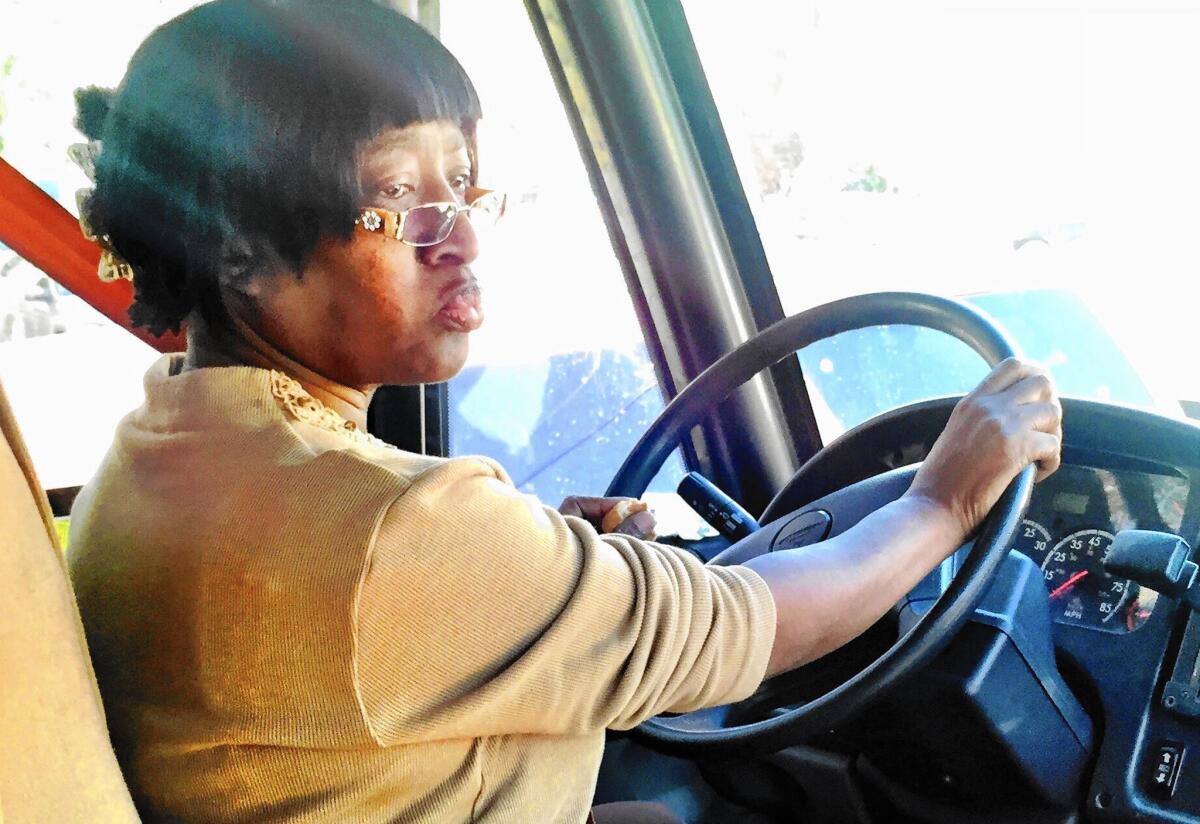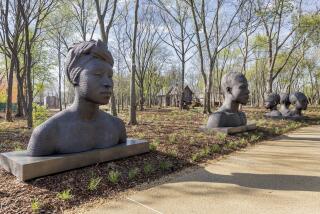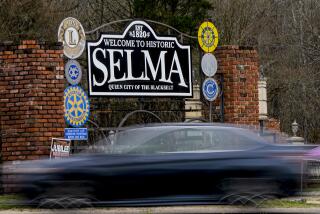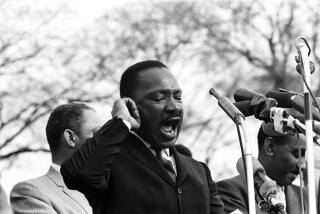‘Bloody Sunday’ anniversary brings the world, and traffic woes, to Selma

Barbara Giles does not judge people by the color of their skin, but by the skill of their parking.
“Look here at this one,” she says, letting her hands fly up momentarily from the steering wheel of Dallas County school bus 09-SE1. “Just parked halfway out. Look here.”
She calms. “That’s all right. We’re gonna be all right.”
It’s Giles’ task this weekend to ferry people — many, many people — from outlying parking areas into downtown Selma near the infamous Edmund Pettus Bridge. The world has come to Selma, and 60-year-old Giles is giving them what-for, through the glass of her windshield.
“Go on! Go on then!” she hollers, waving her arms at a man in a vest who made it halfway across Broad Street, then froze. “You’re halfway, now! Might as well finish the job.”
As 09-SE1 lurches forward again, she cackles.
“Too many people,” she says. “Too, too, too many people.”
Tens of thousands of people descended on Selma in south-central Alabama this weekend, including two presidents, various pop stars and visitors from all around the world.
Haile Agonafer, of Addis Ababa, Ethiopia, climbed onto Giles’ bus and took a seat near the front. He came, he says, because the 50th anniversary of civil rights activists’ march from Selma to Montgomery touches his life today.
“My wife is white,” he says. “She is American. And this....” He gestures at Selma sliding by outside his window, and expresses himself in the accidental poetry peculiar to those new to the language: “This place, and this march, are so ... artistic.”
Giles eyes him in her rearview mirror. She holds up half a hot dog. “Sorry I can’t offer y’all anything,” she says.
Unlike her passenger, Giles has not seen the world. She was born in Selma, she says, and has only left “for little visits here and there, you know.”
But while she sat still, geographically she traveled across the valleys and mountains of history. She remembers not being allowed to enter some places as a child because she is black, and having to wait at other places for white people to be served first. “I remember that strongly,” she says.
She remembers how on March 7, 1965, her mother, Maddie, sent her to Sunday school at the Lutheran church they attended, but Maddie herself went elsewhere.
“I knew she was going to march, and I wanted to go, but she said no,” Giles says.
The day came to be known as “Bloody Sunday,” with club-wielding state troopers beating and tear-gassing demonstrators who attempted to march across the Edmund Pettus Bridge. Her mother was not among those arrested, but a friend was.
Many things have changed since those days, she says. She can enter any establishment she wants. White people hold the door for her. Those are good things, she says. But she also has a unique perspective on Selma’s dilapidated infrastructure.
“This is — the main — road — in town!” she says as the school bus shudders across pot holes and breaks in the pavement, and her tiny frame bounces in the driver’s seat.
Throughout the day she offers out-of-towners advice on getting around Selma, and even gives her cellphone number to a couple unsure of how to find their way back to their car. Call me, she says. I’ll come get you.
At the intersection of Church and Anderson streets, she pulls to a stop and peers left and right. The traffic light doesn’t work. “At least it works coming the other way,” she says, laughing.
She points to blighted homes with broken windows. “These used to be real nice,” she says. For the first time of the day, her face is grim. “But the old folks died and the young folks moved off.”
Then a young woman with braided hair steps into the street, and Giles regains her form.
“All right, now!” she shouts. “Look at you! Just holding me here!”
She has places to be, and people to pick up.
Twitter: @MatthewTeague
More to Read
Start your day right
Sign up for Essential California for news, features and recommendations from the L.A. Times and beyond in your inbox six days a week.
You may occasionally receive promotional content from the Los Angeles Times.






